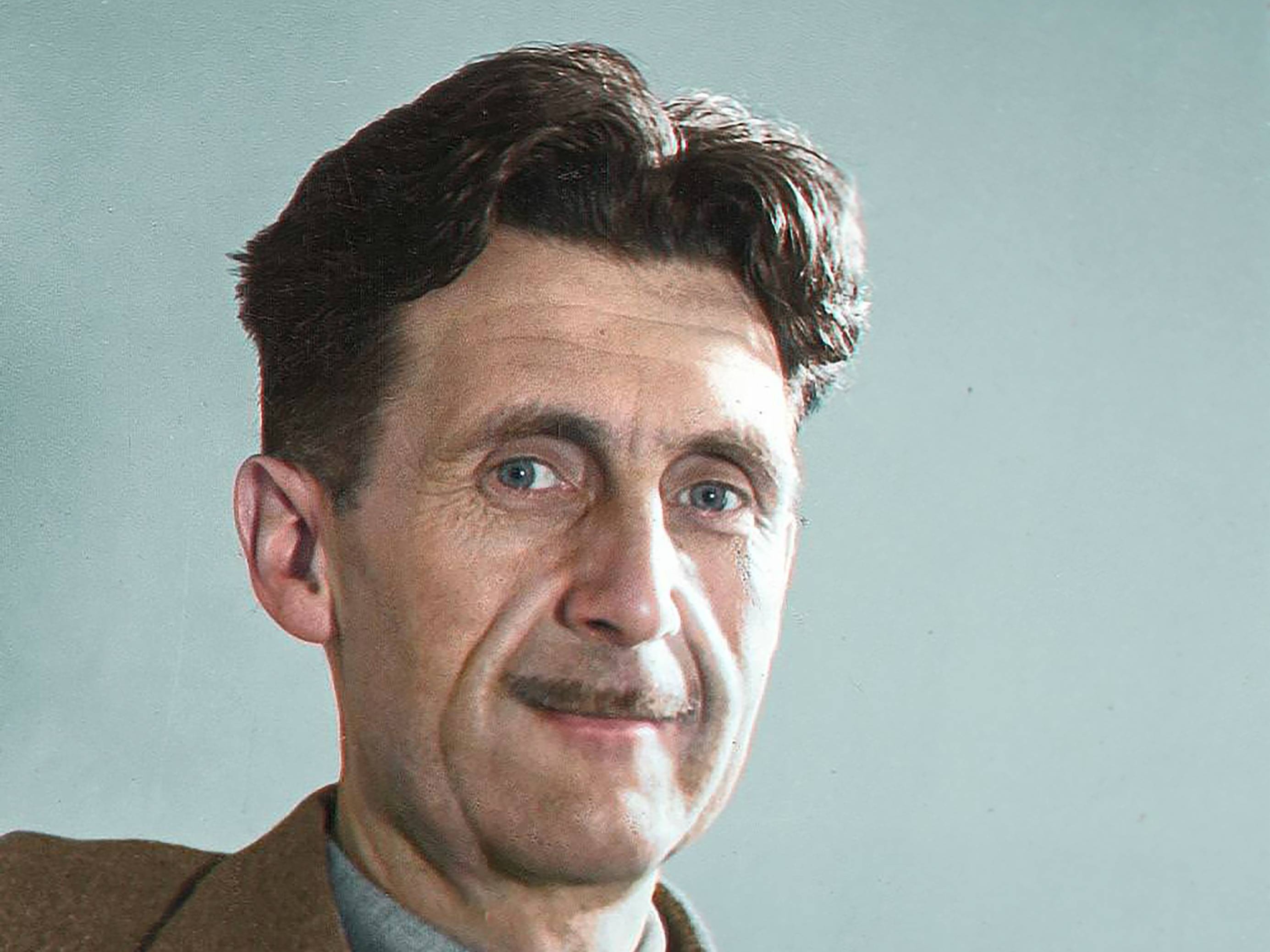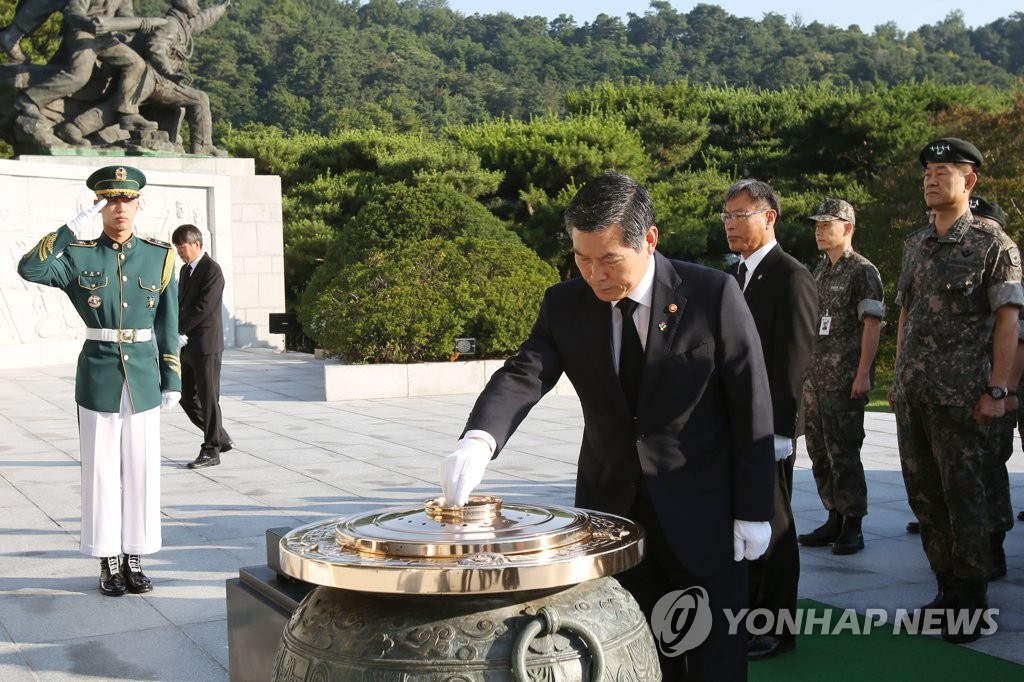
June 25th marks (what would have been) the one hundred and sixteenth birthday of Eric Blair, more commonly known as George Orwell whose chief works, Animal Farm and 1984, would surely find no purchase in today's climate of blinkered thinking, censorship and love for the totalitarian.
One of the interesting things about George Orwell was his ability to see beyond his current situation and even beliefs he held when the truth was apparent. His disillusionment with socialism (any form of leftism, really) and its graphic depiction in his two most well-known works is a sobering revelation from the romanticised view of communism to the reality of the face being stamped by a boot forever.
**
June 25th is also the sixty-ninth anniversary of the Korean War, one the many land wars in Asia that other countries went into without a clear mandate to win:

The legacy of Korea's division and torment:
'I had never felt happiness until I fled North Korea' – Jihyun Park writes #RefugeeWeek https://t.co/dBFAu0yLbM— William Kim 김영권 (@NKMESSENGER) June 21, 2019
**
Older North Koreans who are used to state rations are reluctant to acknowledge the failure of the socialist system. But Oh Chong-song, the North Korean soldier who made a daring defection to South Korea through the border truce village of Panmunjom in 2017, said it is "impossible" to control the thoughts of the younger generation. Oh said he started watching South Korean dramas and listening to K-pop at a young age and always dreamed of escaping the North.
One of the four North Koreans who defected aboard a fishing boat last weekend asked a South Korean he ran into in the port city of Samcheok, Gangwon Province to lend him a mobile phone so he could talk to his aunt who lives in Seoul. He was carrying a piece of paper with her phone number. The National Intelligence Service said another young man was at risk of punishment for watching a South Korean movie. The latest defection symbolizes the hopelessness felt by young North Koreans.
Only two to three percent of North Korean defectors make the harrowing journey by sea because failure means death. But the four men made the dangerous 800 km journey aboard a wooden fishing boat. While North Korean leader Kim Jong-un and 10 percent of North Korea's privileged live in Pyongyang shielded by nuclear bombs, the remaining 90 percent writhe in pain.
**
Thae Yong-ho is a defector in a more widely understood sense. He was North Korea’s deputy ambassador to the United Kingdom when he went over to the South Koreans in 2016. He is one of the highest-ranking North Korean officials ever to defect. He is something rare in the world: a messenger from a closed and isolated society, a “hermit kingdom,” as North Korea is called. ...
All North Korean diplomats, wherever they were posted, were instructed to get food aid from their host governments. Thae went to the Danish foreign ministry. They were happy to oblige. But they had questions: Why was Kim Jong-il investing millions in nuclear weapons when people were starving? Why was he spending millions on a mausoleum for Kim Il-sung (his father and predecessor) when people were starving? These were hard questions to answer.
Thae came face to face with the hypocrisy of the regime he was serving, and had been taught to revere. North Korean delegates arrived in Denmark to buy cows, for the special use of the Kim family. This would keep the Kims in dairy products and beef. Other delegates arrived to buy beer for the North Korean elites. These things were a far cry from the equality of man.
Thae began to experience “doublethink,” in Orwell’s immortal and useful coinage. Part of him held on to the true faith, the North Korean Communist faith; another part of him had plain doubts.
**
Kim Yo-jong, sister of North Korean leader Kim Jong-un, appears to have been promoted to a leadership role, South Korea's spy agency said Tuesday.
The status of Kim Yong-chol, who served as a chief negotiator in nuclear talks with the United States, also seems to have fallen, following the no-deal summit between the North's leader and U.S. President Donald Trump, the National Intelligence Service (NIS) said in a closed-door briefing to lawmakers.
Kim Yo-jong, who has assumed the No. 2 post of the ruling Workers' Party of Korea's propaganda and agitation department, was spotted sitting next to Kim Yong-chol to watch the country's propaganda performance last week, an event to celebrate Chinese President Xi Jinping's visit to the North.
"She appears to have been promoted to the leader level. Her status seems to have been raised following a role adjustment," the NIS was quoted as saying by Rep. Lee Hye-hoon.
Rumor had it that she was disciplined in the wake of the breakdown of the Kim-Trump summit in February in Vietnam as Kim disappeared for more than two months from public view.
But trumping such a speculation, she returned to the public eye in early June when attending the propaganda group gymnastics and artist performance.
The NIS said she appears to be on the same level as Choe Ryong-hae, de facto No. 2 man in the country, and Ri Su-yong, vice chairman of the WPK.
(Sidebar: perhaps if there is a coup, she will lead it.)
**
South Korean President Moon Jae-in won't meet bilaterally with Japanese Prime Minister Shinzo Abe at the Group of 20 summit this week, a Cheong Wa Dae official said Tuesday amid a drawn-out spat between the neighboring countries over their shared history.
South Korea is "always" ready for such a separate summit, but Japan doesn't seem to be, the official told reporters in a briefing on Moon's schedule for the two-day G-20 session to open in Osaka, Japan, on Friday.
(Sidebar: I suspect Moon sabotaged this and who can be surprised?)
**
Reopening a now-shuttered inter-Korean industrial complex in North Korea could encourage cross-border economic cooperation and also act as a "driver of dialogue" on the Korean Peninsula, a global think tank said Tuesday.
Yes, about that:
One issue missing from this discussion is the actual conditions under which workers are employed by foreign investors in North Korea. The picture is not very appealing. According to survey data presented below, only one in five South Korean firms investing in North Korea even knows how much its workers are paid. Entirely missing from the discussion of engagement is whether these employment practices are consistent with various international agreements and covenants to which the governments of North and South Korea have committed, and whether these or other voluntary labor standards initiatives such as the Global Sullivan Principles, which have been applied in other situations of controversy, could be used to achieve the desired transformational effects.
(Kamsahamnida)
No comments:
Post a Comment